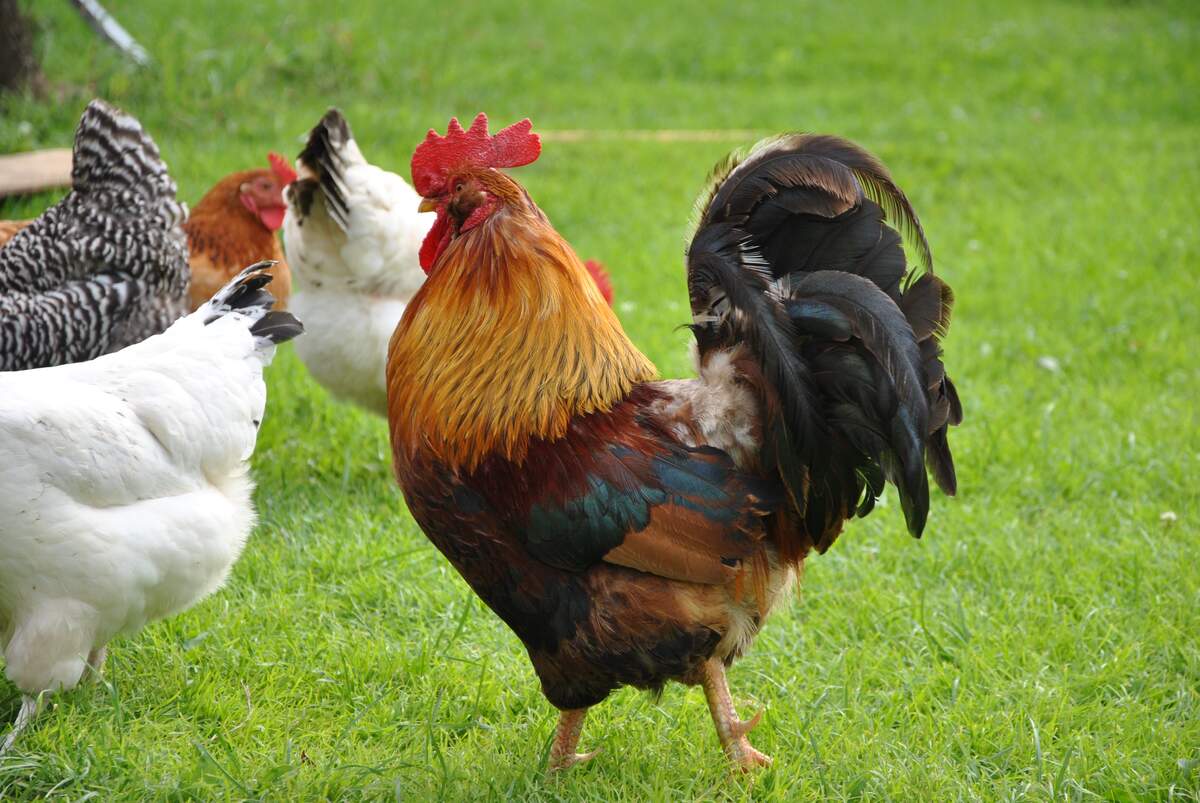

National Chicken Little Awareness Day
Chicken Little is a folk tale about a chick who thinks the world is coming to an end because something, usually a nut such as an acorn, fell on its head. Throughout the story it exclaims, "The sky is falling!" and mistakenly thinks disaster is imminent. Chicken Little decides to tell the king that the sky is falling, and tells other animals of the falling sky too, who join the chick along its quest. In most versions of the story, the animals have rhyming names such as Goosey Loosey, Ducky Lucky, and Cocky Locky. There are multiple versions of the ending of the story: The main one says that a fox named Foxy Loxy invites all the animals into its dwelling and eats them. In some versions, the chick escapes, and in others, all the animals make their way to freedom and are able to visit the king.
The story has different moral messages depending on how it ends. If all the animals survive, the story may be interpreted as saying that it is not a good idea to act like a chicken, and one should display courage instead. If the fox eats everyone, the moral is thought to be that not everything one is told should be believed.
In Britain, the story is commonly known as Henny Penny or Chicken Licken, but in the United States, Chicken Little is the most common name. The story goes back about 2,500 years, being a traditional oral folk story. It began appearing in books in the early nineteenth century, after the Grimm Brothers had set a precedent by publishing German tales.
In 1895, the Merriam-Webster dictionary first listed "Chicken Little," defining it as "one who warns of or predicts calamity." Although, the term had been used in that regard since around 1840. "Chicken Little" or "The sky is falling!" have also been phrases ascribed to those who are unreasonably afraid, or those who try to make others afraid. People can even have "Chicken Little Syndrome." Those that experience it have been overwhelmed by fear mongering and are unable to move forward, as they think something catastrophic is about to happen. This term began being used in the 1950s.
Many different versions of the story appeared in the early-to-mid nineteenth century. Just Mathias Thiele printed an early version in the Danish language in 1823. John Greene Chandler published The Remarkable Story of Chicken Little in 1840 in America. Robert Chambers' Popular Rhymes, Fireside Stories, and Amusements of Scotland was printed in 1842, and included a version of the story. Joseph Orchard Halliwell's The Story of Chicken-Licken was printed in England in 1849, Joseph Cundall's 1850 compilation The treasury of pleasure books for young children included "The Wonderful Story of Henny Penny," and Benjamin Thorpe printed an English version of Thiele's 1823 story in 1853.
Although there is not much information about this day available, it seems it has to do with the Chicken Little folk tale. Not only may the day celebrate this story, but it may be a day to reflect on its moral messages. Celebrants may try to make sure they aren't turning into Chicken Littles, and instill unwarranted fear in others.
How to Observe National Chicken Little Awareness Day
Celebrate the day by reading the story of Chicken Little. Maybe you can even find one of the early versions mentioned in the description of the day. The day could also be celebrated by looking up to the sky and making sure it isn't falling, or to be aware of your surroundings in general—after all, "awareness" is in the days' title. The day could also be used to reflect on times when you overreacted to something, just like Chicken Little did, and to think about how you can improve in such situations in the future. Making sure you aren't making others afraid for no reason may also be a part of this. While doing all these things, why not eat some chicken, or better yet, some Chicken Littles. You also could watch the 1943 film Chicken Little, which was made to combat Nazism during World War II; it focused on how fear mongering weakened the war effort. A film of the same name was released in 2005. There also was a 1999 television episode called "Henny Penny" that was part of the series Happily Ever After: Fairy Tales for Every Child. Any of these titles would be fitting to watch today.





















